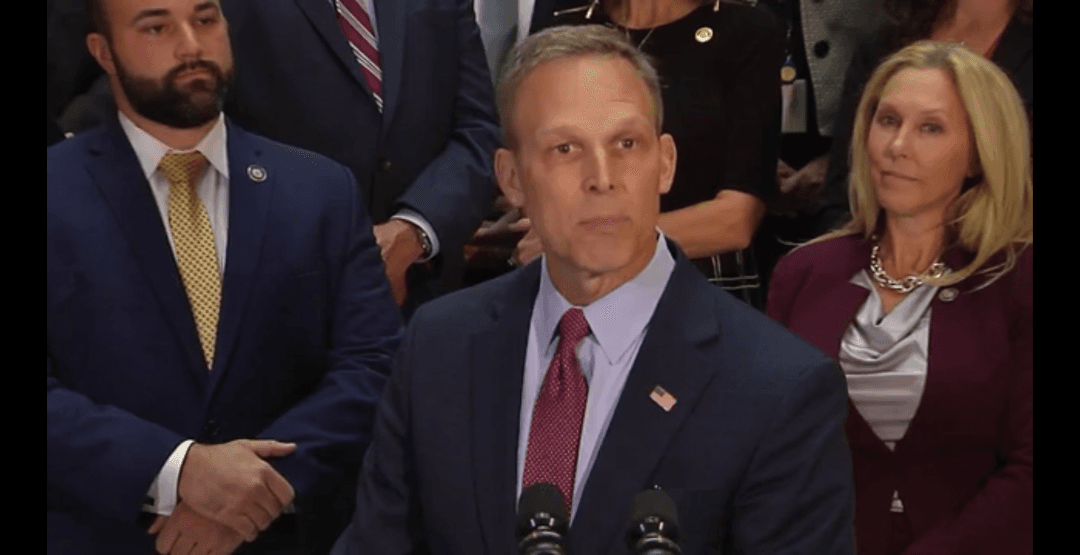Some 23 Republican members of the Pennsylvania House of Representatives have formed a state freedom caucus, aiming to be the conservative voice in an increasingly Democrat-leaning state. The caucus was announced Monday in Harrisburg with an introduction by Rep. Scott Perry (R-Pa.) who chairs the U.S. congressional House Freedom Caucus.
“We stand for the millions of Americans who feel that government [has] left them behind and they don’t have a voice. We’re bringing that voice,” Perry said in front of a small gathering of representatives who will be members of the Pennsylvania caucus.





